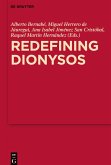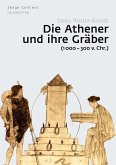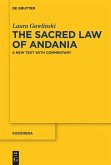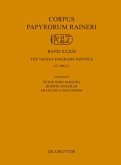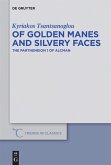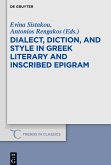Fourth-century Attic grave epigrams reflect a transitional phase in the evolution of the genre of epigram. They testify to a shift of interest towards social issues such as the family, the deceased's age and profession. In a turbulent period of restlessness and uncertainty that followed the devastating Peloponnesian war, the commemoration of the departed in private monuments became an effective mechanism of displaying publicly a new set of social concerns.
It is within these contexts that special emphasis has been put on the composition of sepulchral epigrams, their gradual autonomization and sophistication. This book explores this decisive phase in the evolution of the epigram by reconstructing as many ancient contexts as possible on the one hand, and studying sepulchral epigrams as a poetic art on the other.
It is within these contexts that special emphasis has been put on the composition of sepulchral epigrams, their gradual autonomization and sophistication. This book explores this decisive phase in the evolution of the epigram by reconstructing as many ancient contexts as possible on the one hand, and studying sepulchral epigrams as a poetic art on the other.
"Tsigalis is to be congratulated for producing a comprehensive monograph that takes the epitaphs from fourth-century Attica seriously bothas social documents and as works of literature in their own right."Alexander Sens in: Exemplaria Classica 14/2010
"Tsigalis is to be congratulated for producing a comprehensive monograph that takes the epitaphs from fourth-century Attica seriously bothas social documents and as works of literature in their own right."
Alexander Sens in: Exemplaria Classica 14/2010
"Tsigalis is to be congratulated for producing a comprehensive monograph that takes the epitaphs from fourth-century Attica seriously bothas social documents and as works of literature in their own right."
Alexander Sens in: Exemplaria Classica 14/2010


